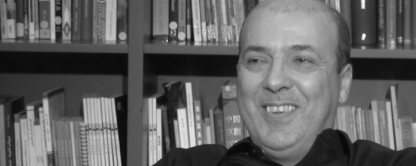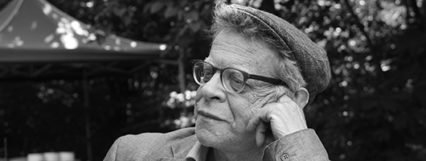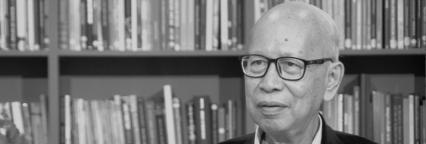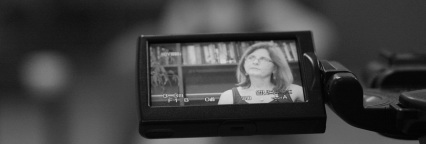
In this interview, IRC-Advisory Board Member Khalid Amine, Professor of Performance Studies, Faculty of Letters and Humanities at Abdelmalek Essaadi University, Tetouan, Morocco, speaks about his focus on interweaving. Describing himself as “a hybrid post-colonial subject located between East and West and between different traditions”, Amine tries to bridge the gap between theory and practice. As the founder of
Performing Tangier, an international festival annually taking place in Tangier, and the Founding President of the International Centre for Performance Studies (ICPS) in Tangier, Amine talks about his efforts to show the positive potential of the concept of interweaving and that of collaborations.

 In this interview, IRC-Fellow Sola Adeyemi, a lecturer in theater and performance at Goldsmiths, University of London, introduces the wide range of his research interests in global theater and performance. Talking about his research project "Dramatizing the Postcolony: Nigerian Drama and Theater", he aims at proffering a new dramatic interpretation of the colonial historiography and postcolonial conquest and at suggesting a new reading of the legacy of dramatic narratives. Adeyemi's study uses geographical mapping and dramatic narratives to express the idealism and figurative ideas that are representational of the cultural manifestations that construct the nature of postcolonial encounters in Africa. Adeyemi also explains how his passion for the theater arouse and his connection to Femi Osofisan.
In this interview, IRC-Fellow Sola Adeyemi, a lecturer in theater and performance at Goldsmiths, University of London, introduces the wide range of his research interests in global theater and performance. Talking about his research project "Dramatizing the Postcolony: Nigerian Drama and Theater", he aims at proffering a new dramatic interpretation of the colonial historiography and postcolonial conquest and at suggesting a new reading of the legacy of dramatic narratives. Adeyemi's study uses geographical mapping and dramatic narratives to express the idealism and figurative ideas that are representational of the cultural manifestations that construct the nature of postcolonial encounters in Africa. Adeyemi also explains how his passion for the theater arouse and his connection to Femi Osofisan. 













